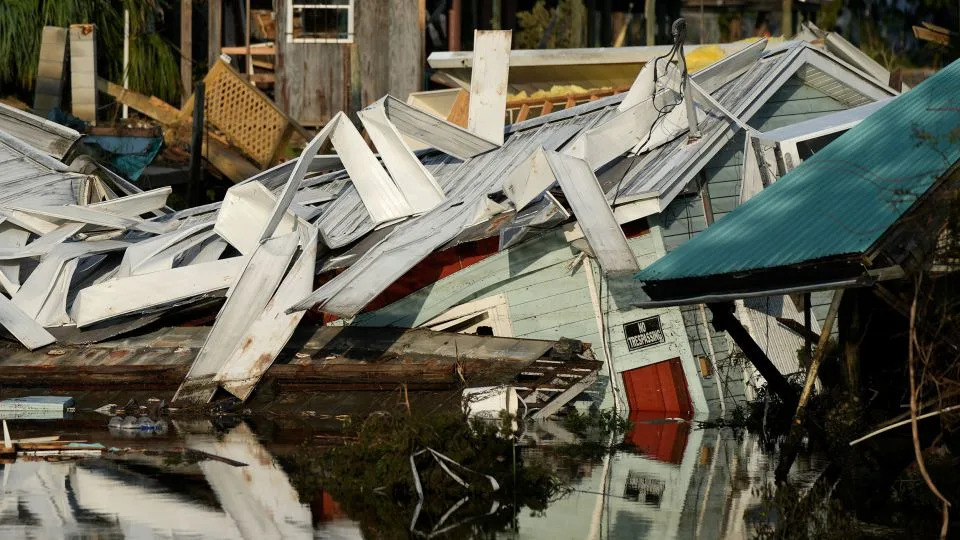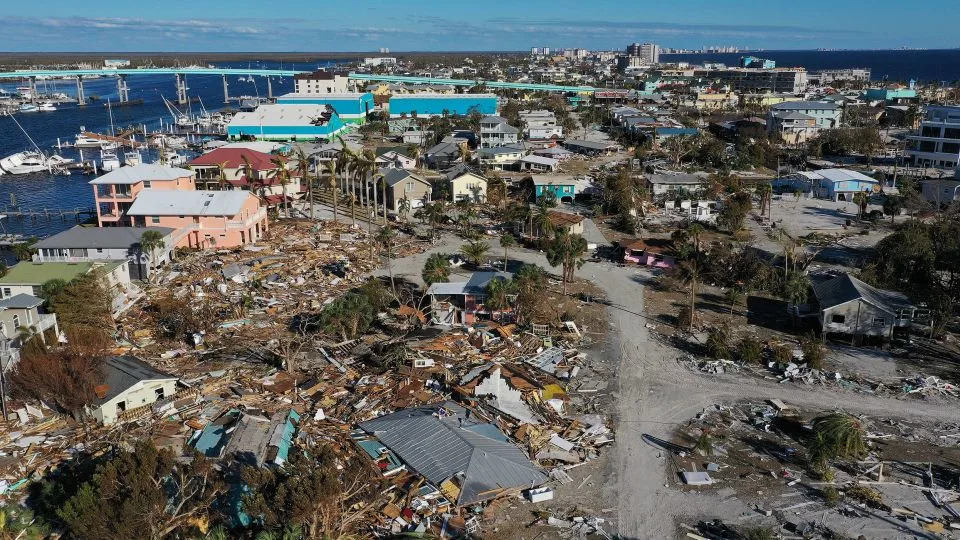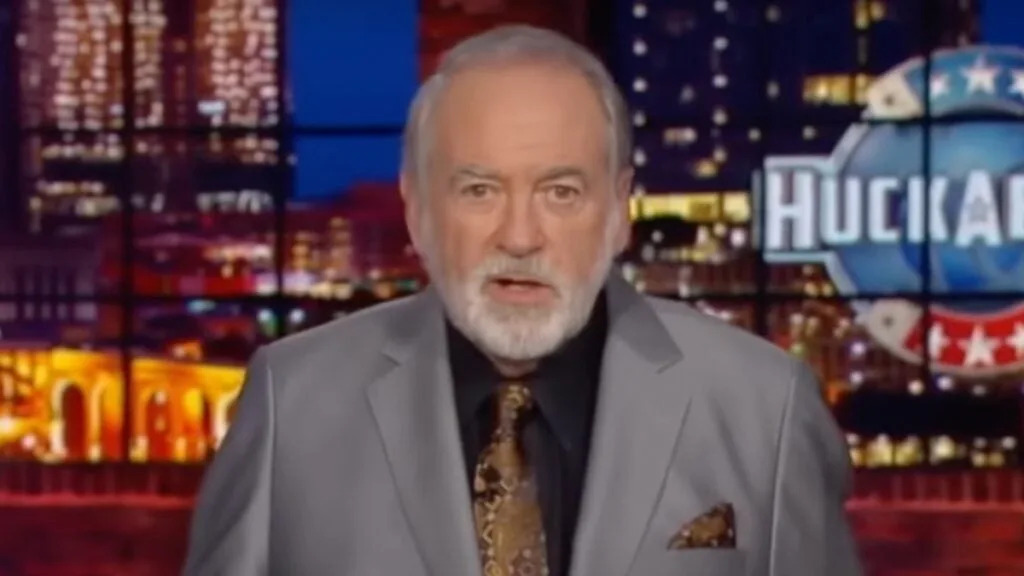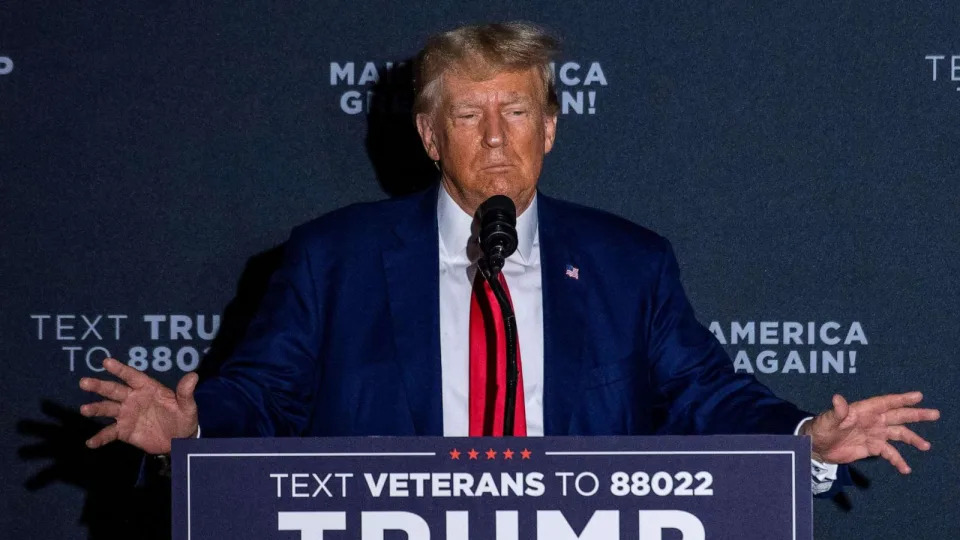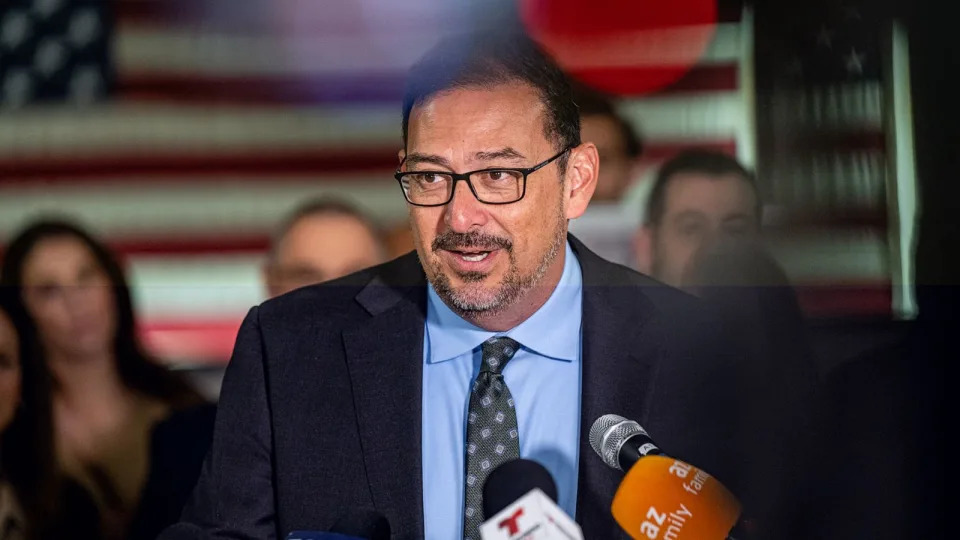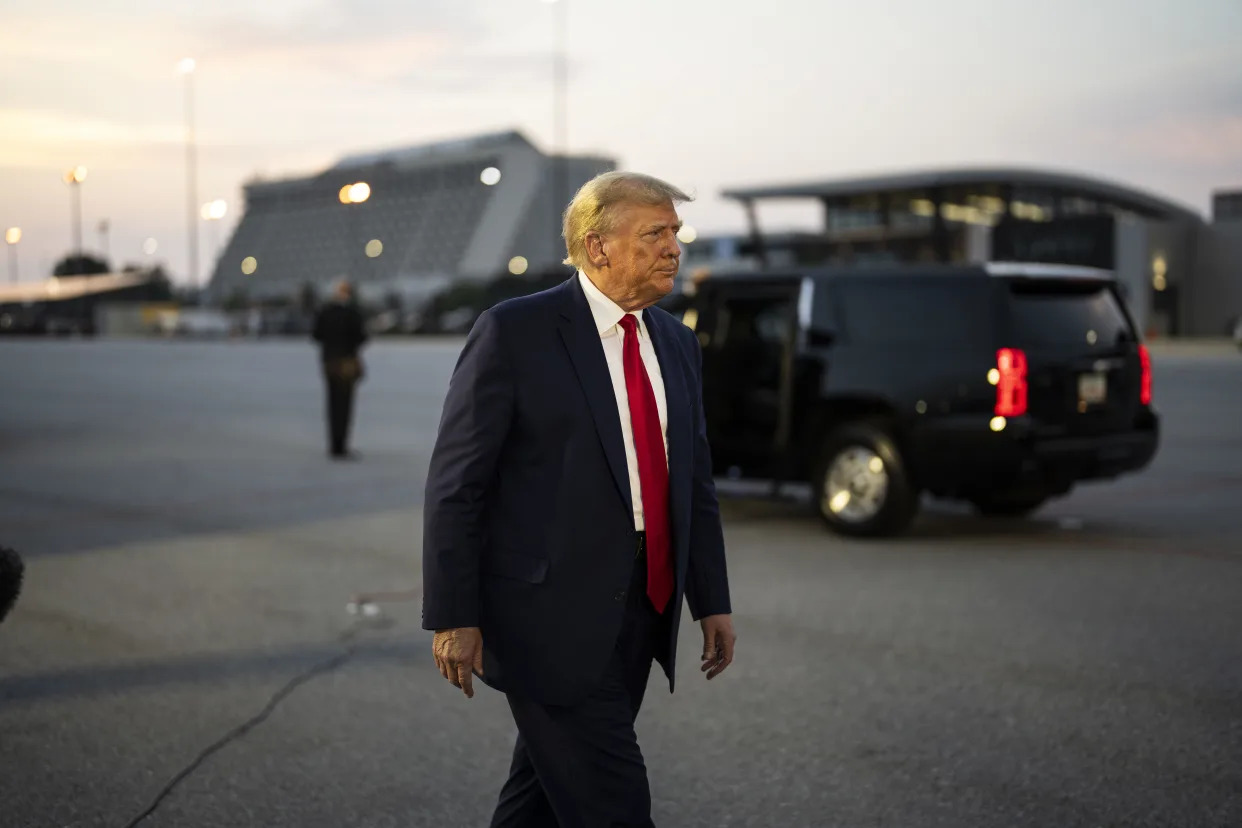Insider
18 times US presidents told lies, from secret affairs to health issues to reasons for going to war
James Pasley – September 8, 2023
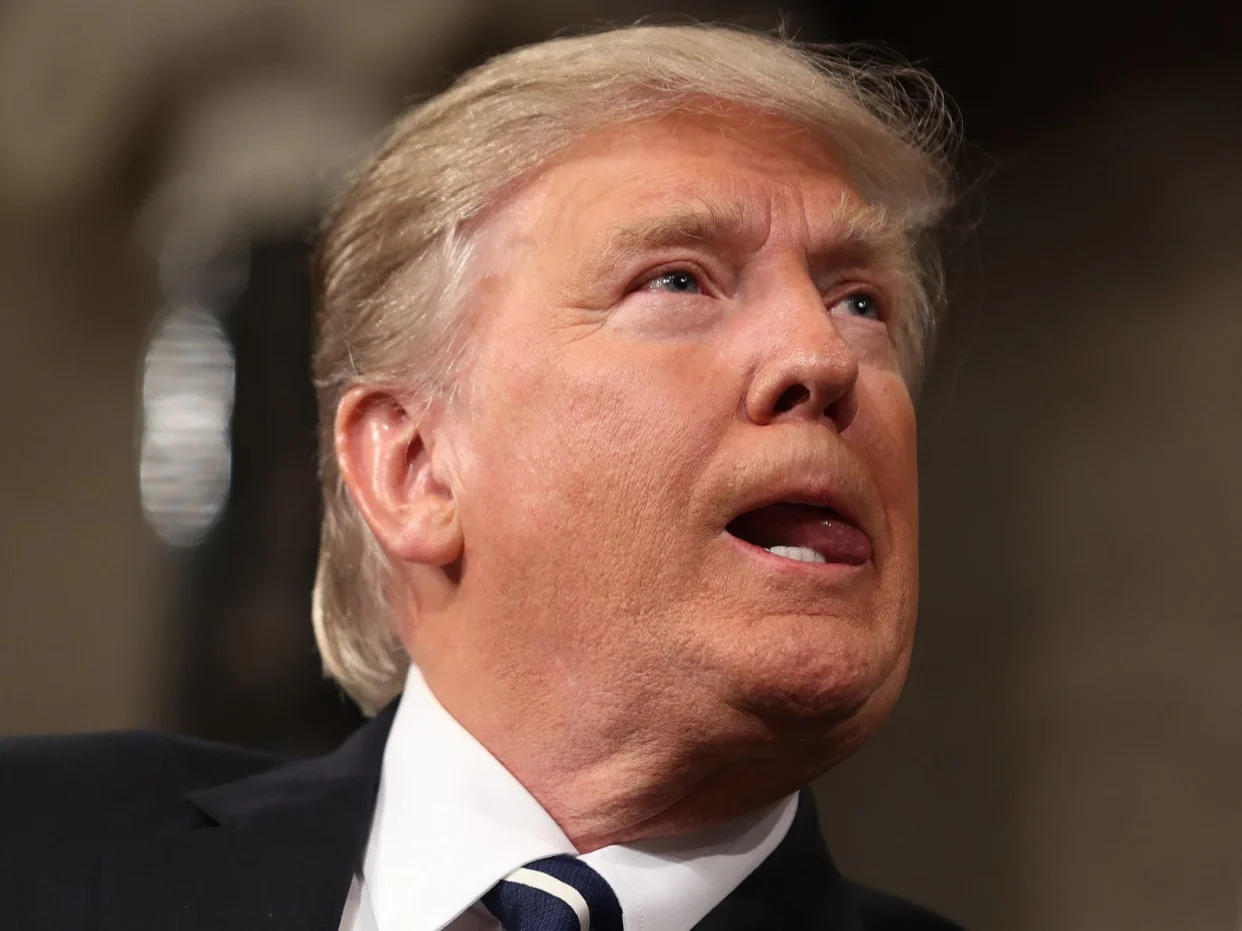
- Every US president has told a lie — from war and taxes to health conditions and extramarital affairs.
- When Dwight D. Eisenhower was caught lying by Russia, he said it was his greatest regret in office.
- President Donald Trump made more than 30,000 false or misleading statements while in office.
“This is what we will say publicly but now, let’s talk about what we will actually do,” President Richard Nixon wrote in a memo about secret bombings in Cambodia in 1970.
“Every president has not only lied at some time, but needs to lie to be effective,” Ed Uravic, who wrote “Lying Cheating Scum,” told CNN.
From President James Polk lying to invade Mexico in 1846 to then-presidential candidate George H.W. Bush famously promising no new taxes, here are some of the most famous lies US presidents have ever made.
In the 1840s, President James Polk told Congress that Mexico had invaded the US.
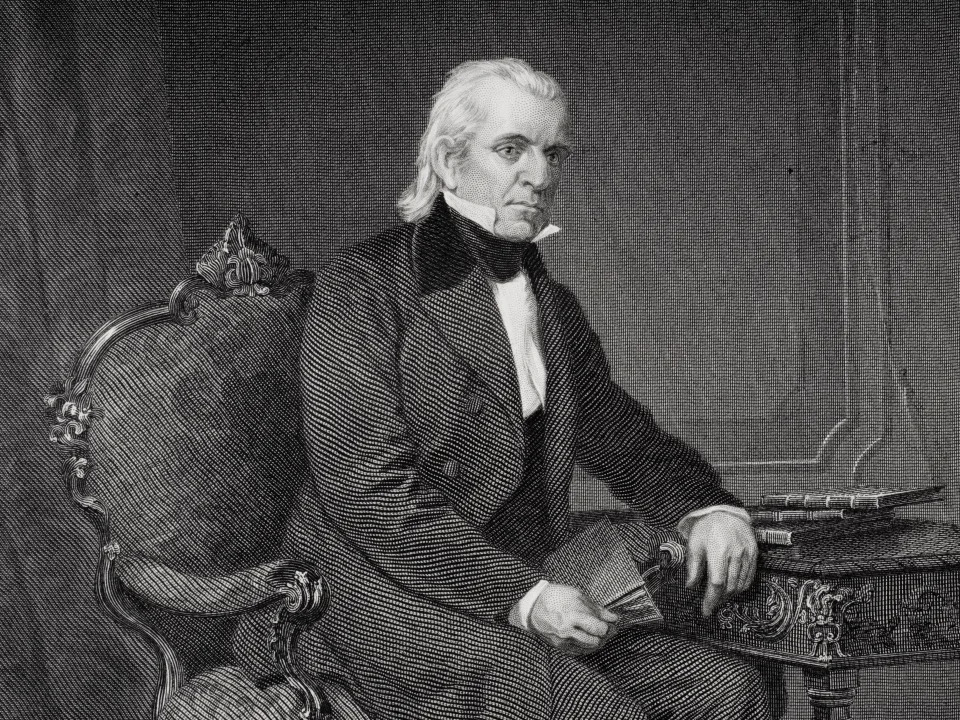
This was a lie. In actual fact, his administration had ordered US soldiers to occupy an area in Mexico near the Texan border in 1846. Then when Mexican forces attacked the US soldiers, Polk claimed it was an attack against the US.
The result of this lie was the Mexican-American war.
In 1865, President Abraham Lincoln, also known as “Honest Abe,” might not have lied, but he wasn’t always truthful.
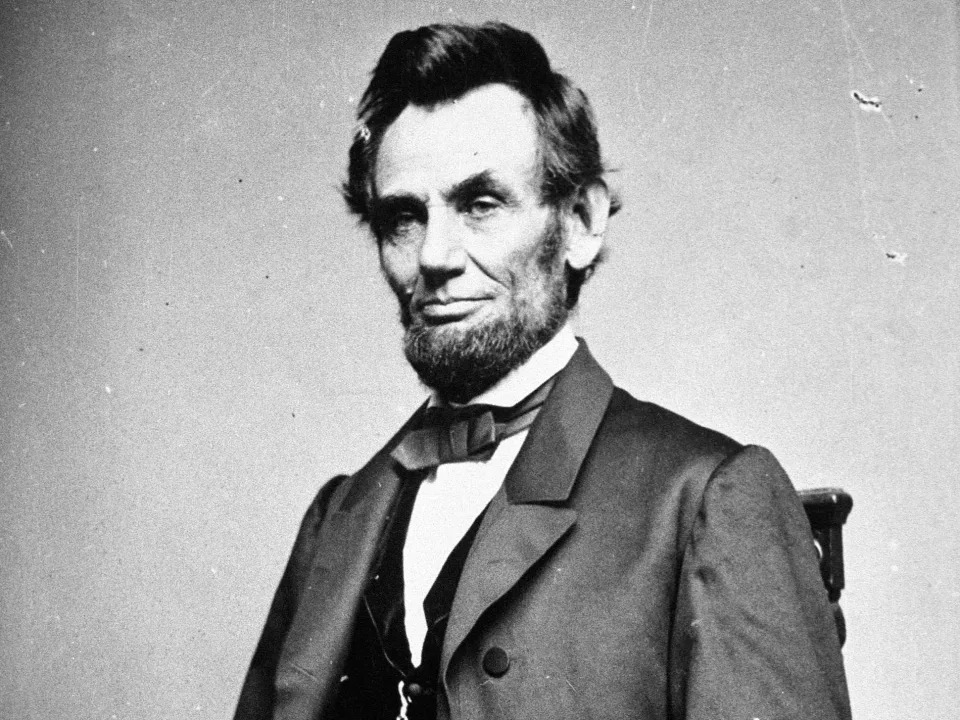
In response to rumors that he was about to meet with Confederate representatives in Washington, he told the House that no representatives were on their way to Washington, The Washington Post reported.
He wasn’t lying — they were on their way to Virginia, where he would later meet them. He didn’t tell the whole truth at the time because he didn’t want his meeting to impact the passing of the 13th Amendment.
Political theory professor Meg Mott told The Conversation his use of truth when dealing with the Confederacy was “devious.”
In 1898, President William McKinley declared Spain had attacked a US warship called the USS Maine in Cuba, killing 355 sailors.

But reportedly, he had no evidence of this.
The actual cause of the sinking has never been conclusively proven.
Although reluctant to go to war with Spain, his insistence that the Spanish were behind the attack led to war, per the Columbus Dispatch.
In 1940, during World War II, President Franklin D. Roosevelt promised the nation that “your boys are not going to be sent into any foreign wars.”
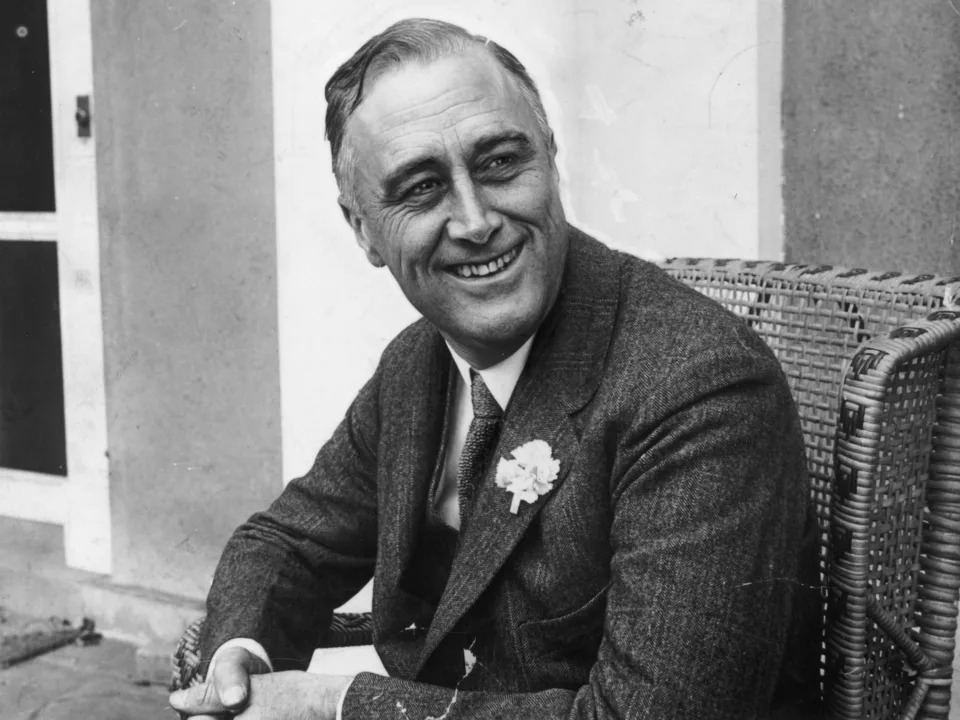
But Roosevelt was already preparing to enter the war. His declaration was an election promise — one he would not keep — made during his campaign against Wendell Willkie.
After his speech, his speechwriter, Sam Rosenman, asked him why he hadn’t said the final part of the speech, which was, “Except in case of attack.”.
Roosevelt responded, “If we’re attacked, it’s no longer a foreign war.”
The following year, in 1941, Roosevelt lied again. This time, he said a German submarine had attacked a US ship called the Greer without provocation.
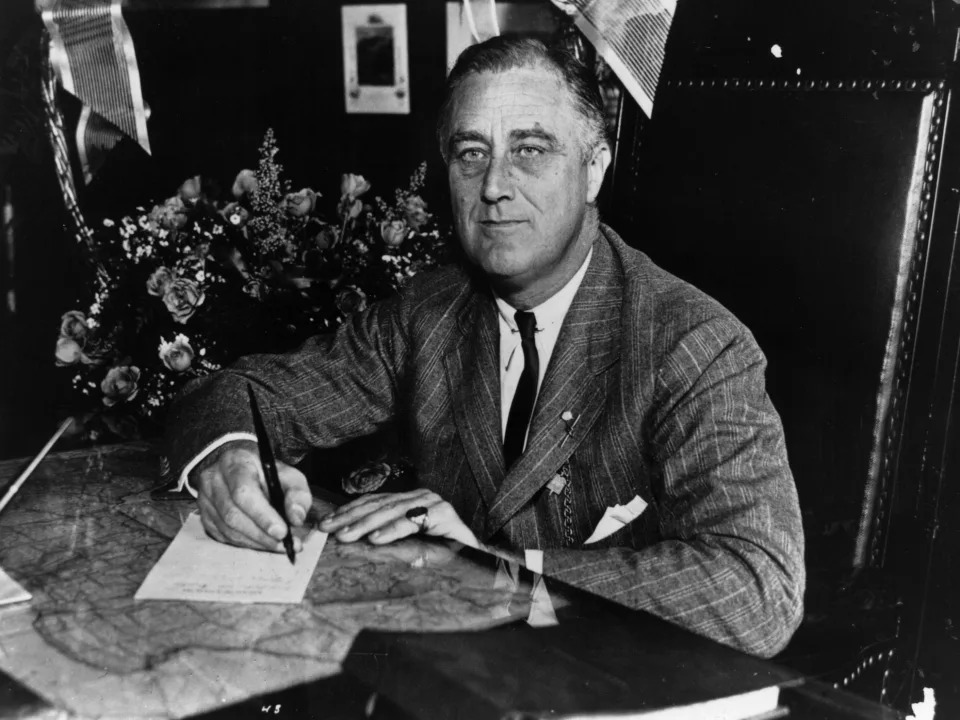
In actuality, the Greer had been protecting British ships crossing the Atlantic Ocean and had been following that German submarine and letting the British know its path.
Roosevelt used the attack as a provocation to prepare the US for entering World War II.
In August 1945, the Truman administration issued a press release after the first atomic bomb was dropped on Hiroshima, describing it as “an important military base.”
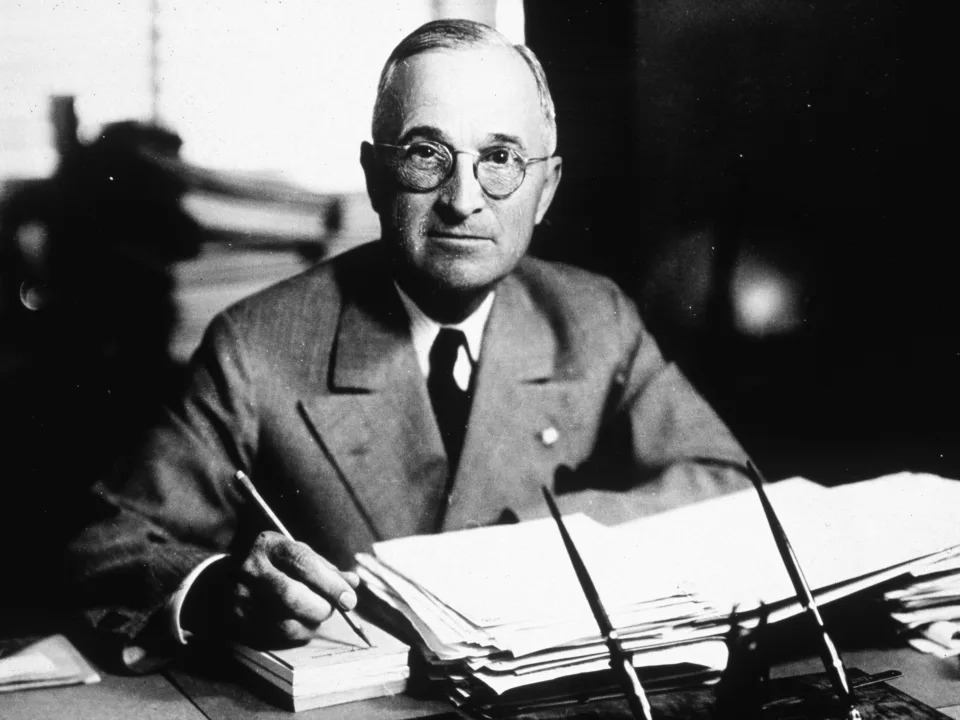
Hiroshima was home to 350,000 people, although it did have a military base in the city.
About 10,000 soldiers were killed in the blast, but most of the 125,000 people who died were civilians.
In 1960, President Dwight Eisenhower dismissed claims that the US had flown spy planes over Russia after one of its planes was shot down.
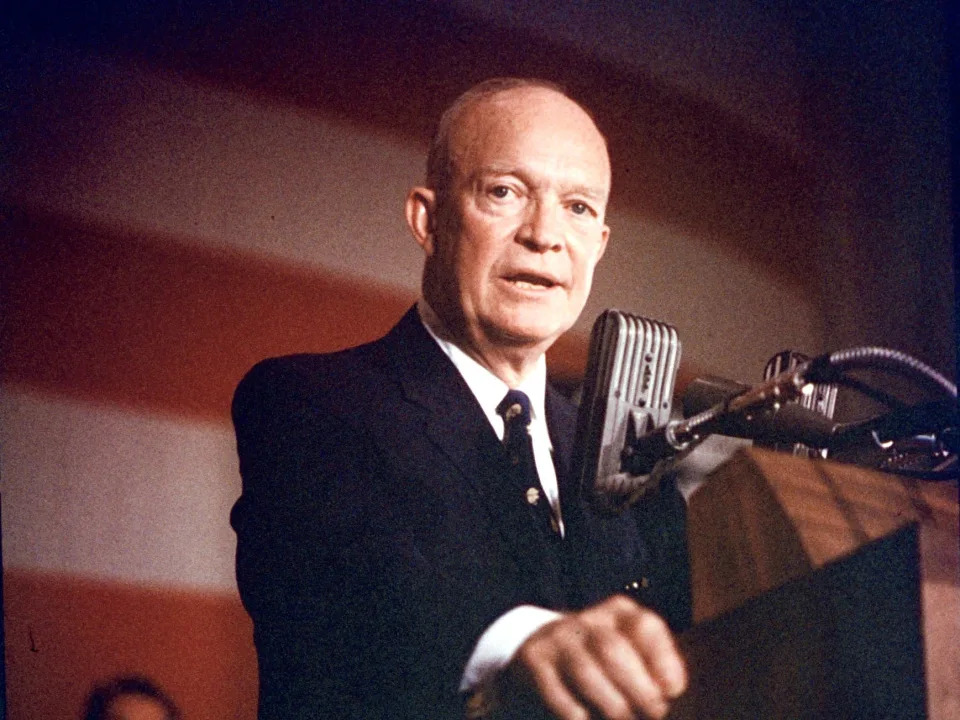
Thinking the pilot was killed, he approved a number of statements that said it was a weather plane. But when Russia announced it had one of the pilots named Gary Powers in custody, he had to admit he had been lying.
He called it the biggest regret of his life.
“I didn’t realize how high a price we were going to pay for that lie,” he said.
On October 20, 1962, President John F. Kennedy told America he had a cold.

The truth was he was dealing with a crisis. Intelligence agents had found that the Soviets were creating a missile base in Cuba.
To ensure the public didn’t panic, Kennedy told the press he had to leave Chicago where he was campaigning because he had a fever. In reality, he had to attend a meeting back at the White House to decide whether to invade Cuba.
He also claimed that the Russians had more nuclear weapons than the US.
Though he lied about having an illness, Kennedy lied about not having another one. In 1960, he said he had “never” had Addison’s disease.
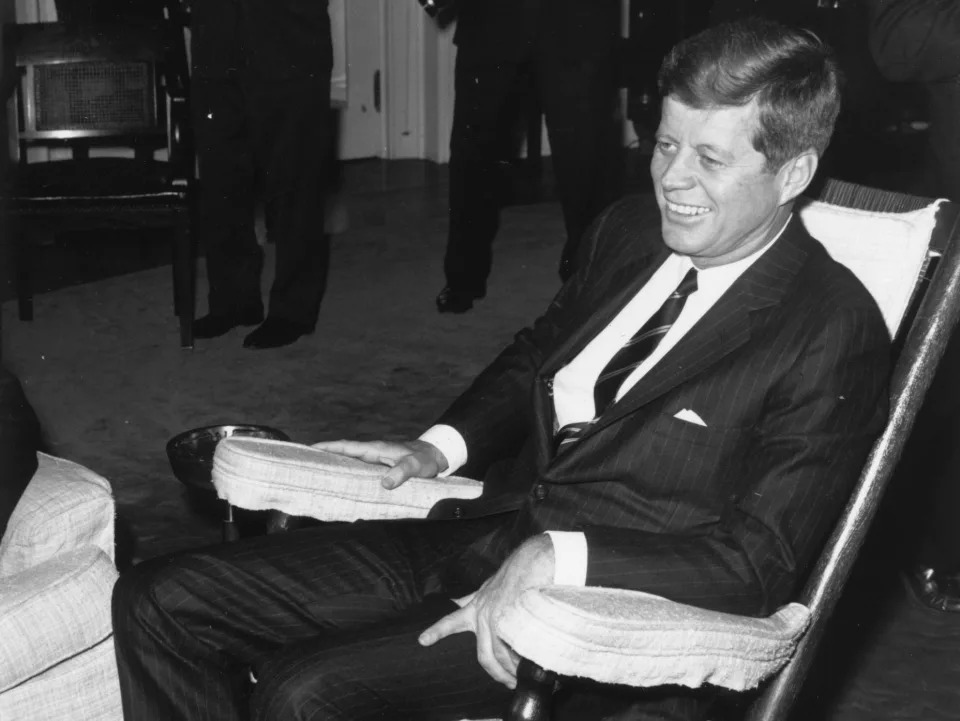
Despite scientists later confirming he had the disease, in his primary campaign against Lyndon B. Johnson, he called himself “the healthiest candidate for President in the country.”
Kennedy wasn’t the only president who lied about his health. Numerous presidents — including Chester Arthur, Grover Cleveland, Woodrow Wilson, Calvin Coolidge, Franklin D. Roosevelt, and Dwight D. Eisenhower — lied about their health at some point.
In 1964, President Lyndon B. Johnson said in a televised speech, “We still seek no wider war.”
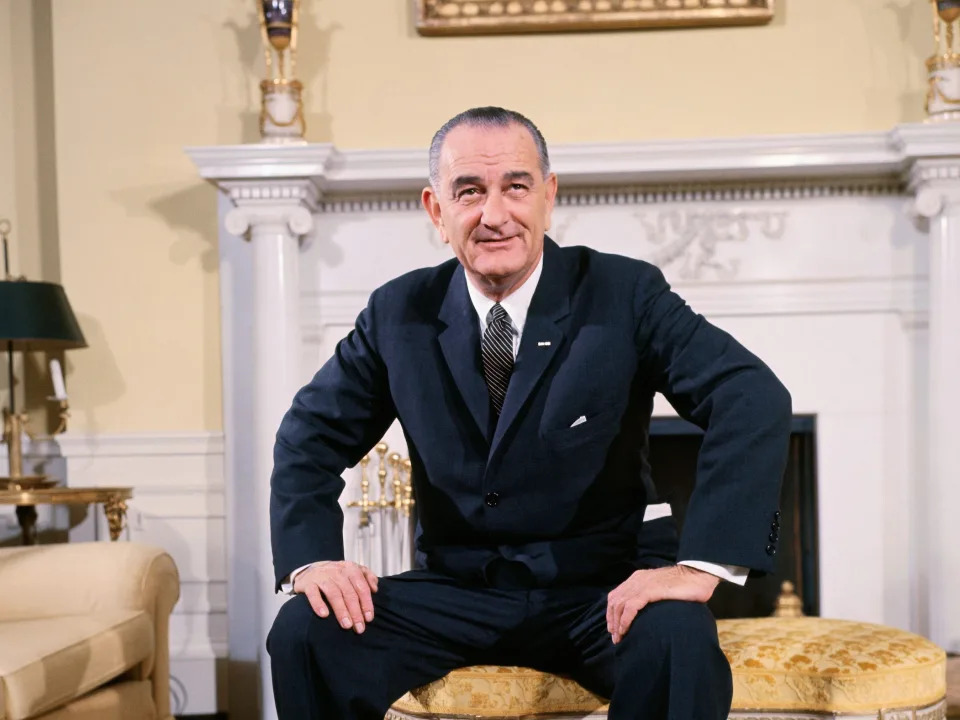
This was in reference to the Gulf of Tonkin incident, in which North Vietnamese patrol boats had reportedly attacked US ships in the Gulf of Tonkin.
In the same speech, he declared, “Aggression by terror against the peaceful villagers of South Vietnam has now been joined by open aggression on the high seas against the United States of America.”
Johnson’s administration claimed that the US ships were out on routine patrols, but they were actually on a secret mission in North Vietnamese territory. The attacks were used to increase the US’s presence in Vietnam.
Johnson’s lies didn’t end there either. He went on to withhold information from the public and Congress about how much was spent on the Vietnam War and how badly the war effort was going.
In 1970, President Richard Nixon lied to the country about a US covert bombing campaign in Cambodia.
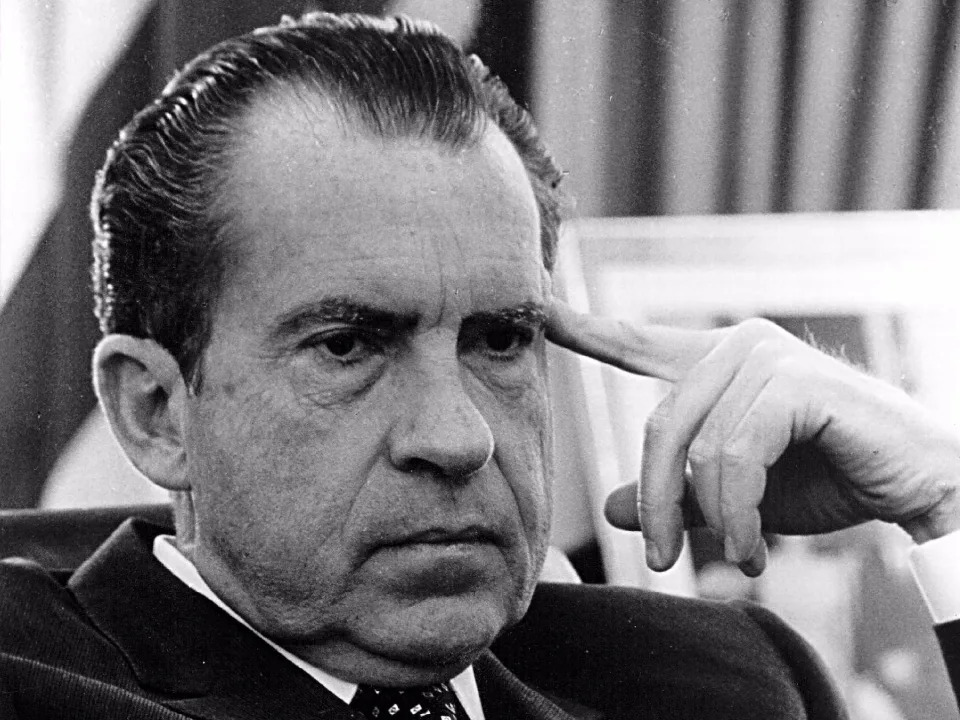
After the bombings were made public, Nixon let people believe the attacks on Cambodia were over.
He advised his staff to tell the public that the soldiers were providing support for local soldiers when, in fact, the attacks continued.
In a memo, Nixon wrote, “This is what we will say publicly but now, let’s talk about what we will actually do.”
In 1974, Nixon declared, “I’m not a crook” after being accused of obstructing justice and lying during the Watergate scandal.

He claimed he was not involved in the scandal, but an investigation found evidence that he was. He later resigned as president instead of potentially being impeached.
In 1986, President Ronald Reagan promised the nation: “We did not — repeat, did not — trade weapons or anything else for hostages, nor will we.”
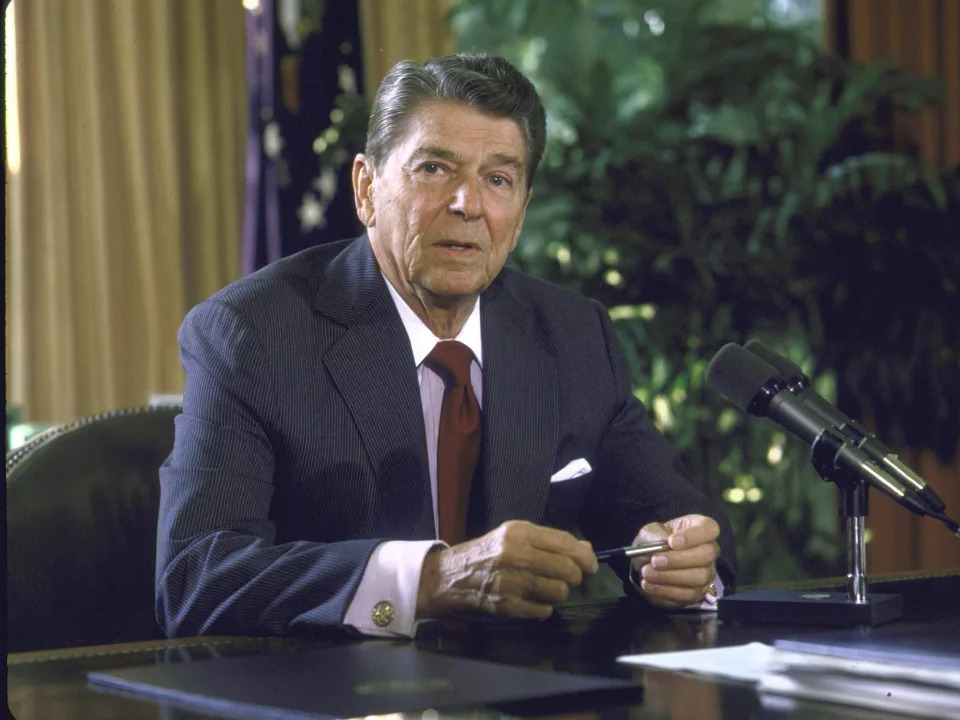
This was during the Iran-Contra Affair, where the US government secretly traded weapons with Iran in exchange for the release of US hostages being held by terrorists in Lebanon.
The government then used the money from the weapons to fund anti-communist groups in Nicaragua.
Despite Reagan’s promise, it later turned out the US had in fact traded arms for hostages.
He later said, “My heart and my best intentions still tell me that’s true, but the facts and the evidence tell me it is not.”
In 1988, then-Republican presidential nominee George H.W. Bush said, “Read my lips: No new taxes.”

His whole statement was: “My opponent won’t rule out raising taxes. But I will. And the Congress will push me to raise taxes, and I’ll say no. And they’ll push, and I’ll say no, and they’ll push again, and I’ll say, to them, ‘Read my lips: no new taxes.'”
At the time, the six words were seen as a successful political slogan.
But Bush was later forced to raise taxes during negotiations with a Senate and House controlled by Democrats. After he did so, The New York Post went with a headline that said: “Read my lips: I lied.”
His U-turn on taxes was widely seen as one of the reasons he did not get re-elected for a second term.
In 1998, President Bill Clinton said before a federal grand jury, “I did not have sexual relations with that woman,” referring to his intern Monica Lewinsky, with whom he did, in fact, have an affair.

Clinton was impeached for lying under oath, but he was acquitted by the Senate.
It was thought to be the first time a president was caught lying about their sex life because it was the first time a president had ever really been asked about it.
In 2003, two months after the US invaded Iraq, President George W. Bush claimed to have found weapons of mass destruction to justify the war.

“We found the weapons of mass destruction,” he said. “For those who say we haven’t found the banned manufacturing devices or banned weapons, they’re wrong; we found them.”
But they hadn’t found anything.
Bush later said, “We do not know whether or not [Iraq] has a nuclear weapon.”
However, then-CIA Director George Tenet later testified that Bush was advised there were no nuclear weapons and it would be unlikely that the country could even make one until 2007.
In 2008, when President Barack Obama was pushing through his new Affordable Care Act, Obamacare, he promised people wouldn’t need to change their plans if they didn’t want to.

“If you like your plan, you can keep it,” Obama said. But it wasn’t true.
In the end, millions of people had to change their plans. He also didn’t just say it once, but around 37 times, Politico reported.
“I am sorry that they are finding themselves in this situation based on assurances they got from me,” he said in 2013.
President Donald Trump made more than 30,000 false or misleading statements while in office.

This averaged out at about 21 false claims a day, The Washington Post reported.
Some of Trump’s lies included his claim that the pandemic was “totally under control,” the altering of a weather map with a Sharpie after he wrongly said Alabama was at risk from Hurricane Dorian, or his claim that Rep Ilhan Omar supported al Qaeda.
He also falsely claimed the election was stolen from him.

